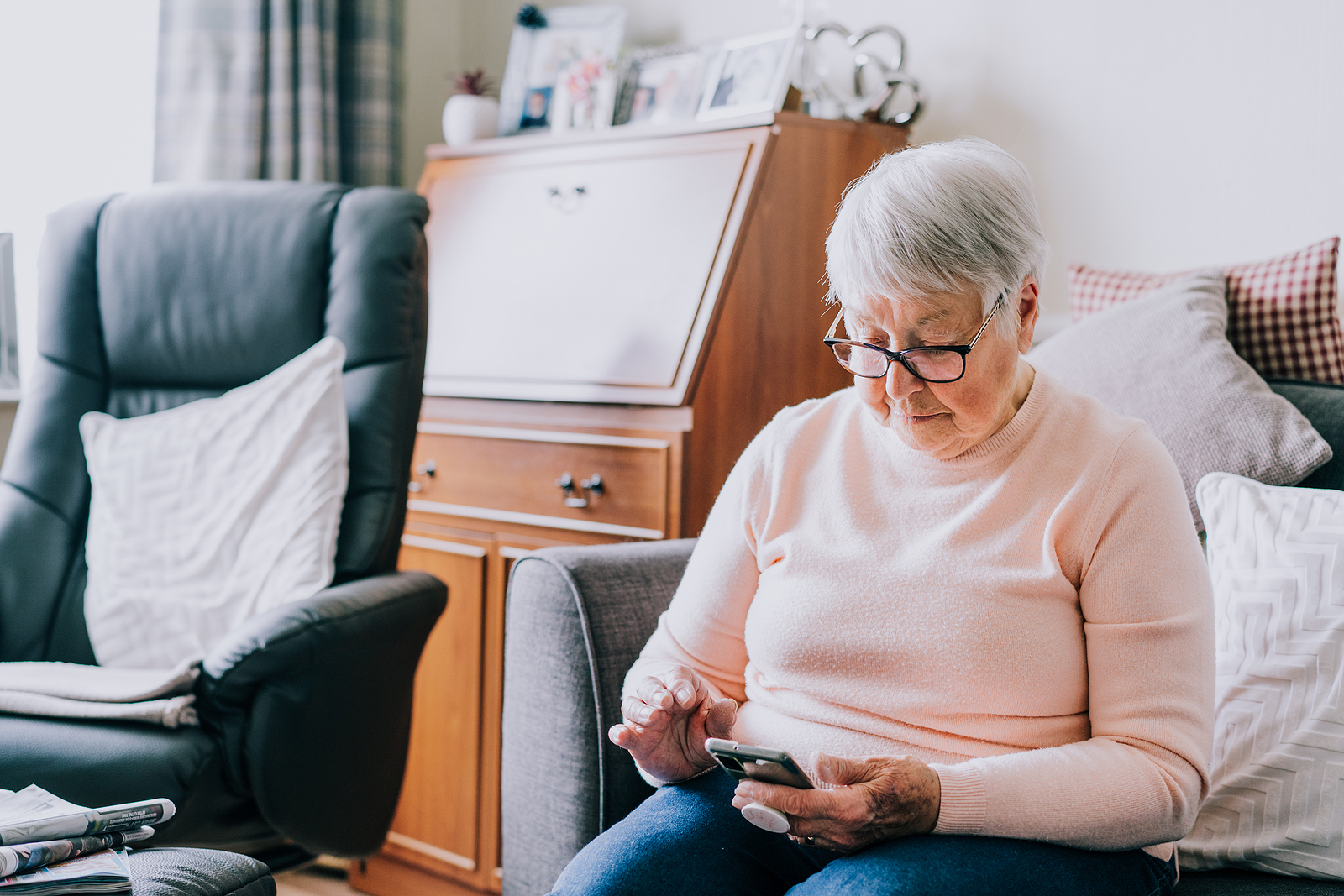Social media can be a great way for seniors to stay connected to family, make friends, and even find romance later in life. But, there are a lot of scammers using social media to find vulnerable people and steal from them. Seniors who may not know much about social media have a high risk of being scammed on social media. And seniors may also inadvertently share sensitive information on social media that can put them at risk. These tips can help seniors use social media safely and avoid being scammed:
Strong Passwords
Seniors should create strong, unique passwords for their social media accounts. Avoid using easily guessable information, such as birthdays or names, and consider a combination of letters, numbers, and symbols. Use a password manager to keep track of your login details securely. Seniors also can ask a home care provider to write down their passwords and keep them in safe space so that seniors can access them if they need to.
Use Privacy Control Settings
Most social media platforms offer privacy settings that allow you to control who can see your content and engage with you. Adjust these settings to limit your information’s visibility to only friends and family, rather than making it public. Seniors who are unsure of how to use their privacy control settings should ask a home care provider for help.
Be Careful When Accepting Friend Requests
Be cautious when accepting friend requests. Ensure you know the person personally or have a mutual connection before adding them to your friends’ list. Fake profiles and scammers often target seniors. Even if a profile says it’s someone that you know verify that the account really belongs to that person before accepting their friend request.
Avoid Oversharing
It’s essential to avoid oversharing personal information on social media. Refrain from posting your full name, address, phone number, or other sensitive information that could be exploited by cybercriminals.
Phishing Awareness
Be cautious about clicking on links or opening attachments from unknown or suspicious sources. Phishing attempts are prevalent on social media, and they often trick users into revealing their personal information. Never click on links in emails or direct messages. Instead, go directly to that website in a secure browser.
Use Two-Factor Authentication
Enable 2FA on your social media accounts whenever possible. This adds an extra layer of security by requiring you to provide a code or use a second device to log in, in addition to your password. Many seniors find two-factor authentication annoying, but it does provide protection.
Recognize Scams
Seniors should be aware of common online scams, such as the “grandparent scam,” where scammers impersonate a family member in distress and ask for money. Always verify the identity of the person making such requests through other means.
Think Before You Post
Think twice before posting anything online, as once it’s out there, it can be challenging to take back. Always consider the potential consequences of your posts, especially if they contain personal or sensitive information.
Report Abuse and Harassment
If you encounter any abusive or harassing behavior on social media, report it to the platform administrators. They take these matters seriously and will investigate and take appropriate action.
Limit Third-Party Apps
Be cautious when giving access to your social media accounts to third-party apps. These apps can potentially access your personal information and post on your behalf. Only use apps and services from reputable sources.
Regularly Review Friend List
Periodically review your list of friends or connections on social media. Remove or unfriend individuals you no longer wish to stay connected with.
Be Skeptical of “Too Good to Be True” Offers
Scammers often entice victims with offers that seem too good to be true. Whether it’s a lottery win or an unbelievable deal, approach such offers with caution and verify their legitimacy.
Don’t Share Financial Information
Never share your financial information, such as credit card details or social security numbers, on social media. Legitimate organizations will never request such information through social platforms.
If you or an aging loved one is considering home care in Lafayette, CA, please contact the caring staff at Golden Heart Senior Care of Walnut Creek. (925) 203-3039.


